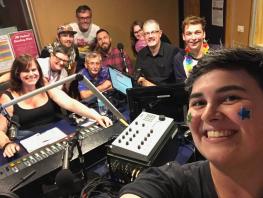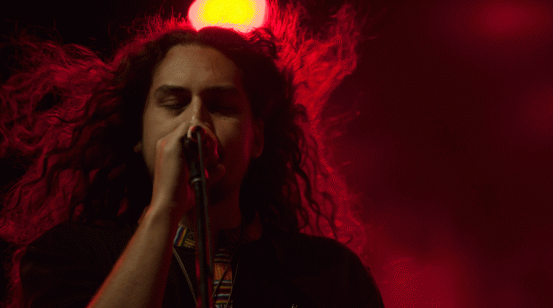
Yes for Love
In late 2017, LGBTIQ radio station JOY 94.9, rebranded to YES 94.9.
It was part of the station's effort to give their announcers free reign to share their stories and discuss how the Same Sex marriage postal vote is effecting their lives.
Edited and available for stations through the Community Radio Network is a series of short pieces - stories in the age of the postal survey.
YES for LOVE is a series that looks at the different and varied layers of the same sex marriage survey.
It is being made available to other community radio stations wishing to share such personal - but not uncommon - stories with listeners.
Hear from celebrities and politicians about the impact this vote is having upon everyday humans.
Guest |
Description |
Duration |
|---|---|---|
| Christine Forster | Sister of politician and staunch No advocate Tony Abbott. She speaks about how proud she is of her niece and the respect she has for her brother despite their differences in opinion. | 05:32 |
| Mary Lambert | Grammy award winning singer-songwriter, whose song was featured as the hook of marriage equality anthem Same Love by Macklemore. While she was in Australia for the NRL grand Final, she lent her voice in support of the community. | 05:19 |
| Ben Hull | As a young gay man growing up in the 90s, Ben coped it from both ends – being gay and having two mums. He talks about his experience. | 03:52 |
| Harry Lloyd |
Growing up as a tom boy in a small Welsh town, Harry now calls Australia home. Here she talks about how sad it makes her to go through this experience and how she just wants to marry her girlfriend. |
03:46 |
| The Tag Team |
Dave's Dad openly voted No. Hunter reveals he and his partner are having a baby and how he wants his child to have all the protections they deserve under the law. |
03:49 |
| Dream Weddings |
We ask members of the LGBTIQ community what their dream weddings look, feel and sound like. |
05:23 |
| Michelle Sheppard |
We talk to trans woman, activist and mother of two about her experience as a mother and father and her relationship with the Same Sex Marriage postal survey. |
04:52 |
| Truth about Marriage |
Film maker Nicole Baker-Bryson is the mind behind the viral hit The Truth About Marriage that talks about marriage being much more than a ceremony and the legal Next of Kin protection granted with it. This protection is often not granted in legal documents like Power of Attorney. |
05:34 |
| Bronte Price |
An openly gay veteran Marriage celebrant. He talks about how each time he has to say marriage is between and Man and a Woman he dies a little inside. |
05:09 |
| Are the kids alright? (Part 1) | So many people are telling us to 'think of the children'. Hear from 21-year-old Georgia, the eldest daughter from a rainbow family regarding the impact of the current campaign on her and her family. | 05:16 |
| Are the kids alright? (Part 2) |
Hear from Sebastian and Felix, from a rainbow family regarding the impact of the current campaign on them and their family. And they answer the question: can Mums tell Dad jokes? |
05:29 |
For CRN subscribers:
- Edited for a national audience
- 11 parts available for download on request - email [email protected]
- Broadcast/distributed for DDN capture to Extras 2, Wednesday, 18 October, 2017
- For more information contact CRN staff on 02 9310 2999 or email [email protected]
Not a CRN subscriber, but want to find out more about getting content like this for your station? Read more here.
Community Radio Network special broadcasts and content broadcast during the Extras 1 and Extras 2 time in the Program Guide.

Facebook comments